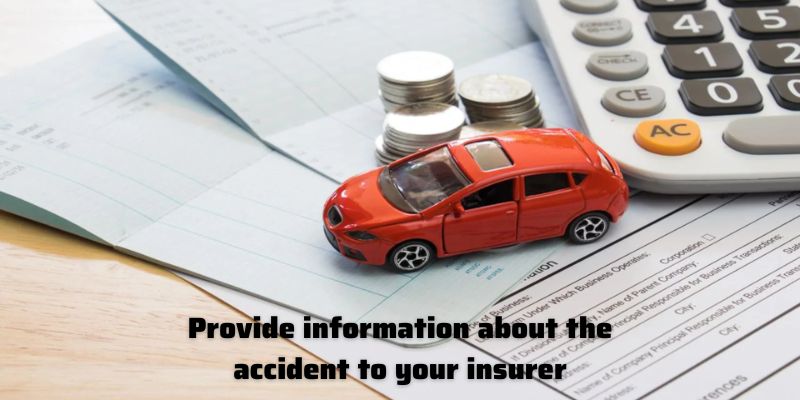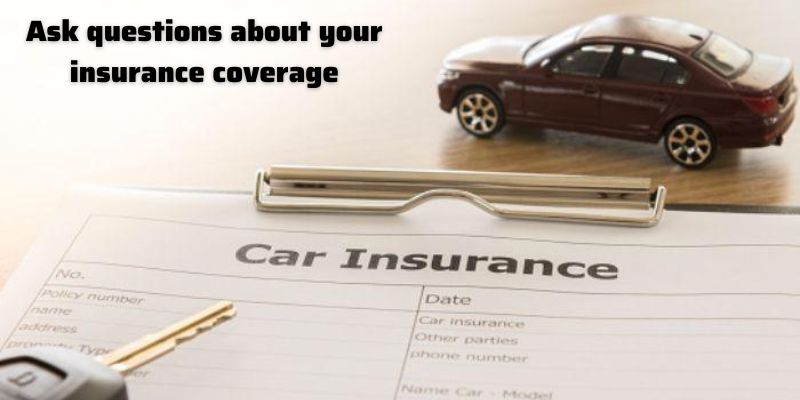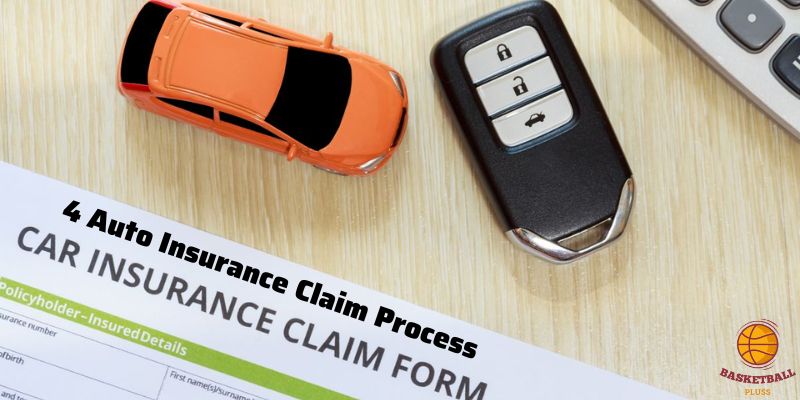Even the safest drivers can be involved in a car accident and how many auto insurance claim process? At the scene of an accident, you should take a few key steps, such as making sure everyone is OK, calling the police and exchanging information with any other drivers involved.
When it comes time to submit a car insurance claim after an accident, knowing what information you may need to provide and understanding how your insurance coverage works is also beneficial.
Knowing what to expect might help the claims process go more easily and guarantee that the money needed to repair your vehicle arrives on time. You should also check with your insurer to determine if they have a time limit for reporting a claim.
Keep in mind that, while each insurance company handles claims slightly differently, many of the procedures are the same. basketballpluss.com will explain the insurance claims process.
1. Provide information about the accident to your insurer (Auto insurance claim process)

even from the scene of the accident—regardless of who is at fault. Even if the accident appears minor, it’s important to let your insurance company know about the incident and to find out whether your auto insurance claim process policy covers you for the particular loss.
Fill out the claim forms carefully. Keep detailed and structured records of anything relevant to the claim, such as the names and phone numbers of everyone you talk with at your insurer, as well as copies of any bills connected to the accident. Contact your adjuster, an insurance professional, or your state insurance department if you have any queries.
You may want to collect the following information:
- Names, contact information, insurance information, and car information for anybody involved in the accident
- Location, time of day and weather conditions
- Photos of vehicle damage
- Officers’ names and badge numbers who responded to the event
- A copy of the accident report
2. Ask questions about your insurance coverage (Auto insurance claim process)

Understanding your auto insurance claim process coverage and what it covers is also a crucial aspect of the claims process. Here are a few things to be aware of or inquire about when filing a car insurance claim:
Your deductible.
You chose deductibles for specific coverages, such as collision or comprehensive coverage, when you bought automobile insurance. Make sure you understand your deductible – this is the amount you must pay out of pocket for vehicle repairs before insurance coverage kicks in.
Assume you have a $500 collision policy deductible and $1,500 in damage to your vehicle. Your deductible will be deducted from your covered claim, and your insurance carrier will pay for repairs up to $1,000.
Transportation expense coverage.
If your car insurance policy includes transportation expense coverage (sometimes known as rental reimbursement coverage), it may help pay for a rental car or other forms of transportation while your car is being repaired.
Inquire with your insurer about how you’ll be compensated, especially before driving a rental car off the lot. You should also confirm the coverage limits of your insurance (for example, your insurer may provide up to $30 per day for a rental automobile for a certain time).
How much time you have to file a claim.
According to the III, it’s a good idea to question your insurance about any time constraints for filing a claim. That’s because if you don’t file your claim and the necessary paperwork within your insurer’s time frame, you may be denied money to help with things like car repairs or hospital bills.
You should also bear in mind that filing deadlines differ based on the sort of claim you’re pursuing. For example, the deadline for filing car damage claims may differ from the timeline for filing personal injury claims. According to Thomson Reuter’s FindLaw, time frames for making a claim differ by insurance and are decided in accordance with any state regulations that exist.
To avoid missing a vital claim deadline, inquire:
- Is there a time limit for making claims and submitting bills under my policy?
- Is there a time limit for resolving claims disputes?
- Is there a deadline for submitting further information?
- When will I hear from the insurance company?
3. Get an estimate and work with the insurance adjuster (Auto insurance claim process)

Typically, your auto insurance claim process company will send an insurance adjuster to inspect your vehicle, determine what was damaged in the accident, and examine the losses. This assists the adjuster in determining who is to blame for the accident. They will also provide an initial estimate of how much repairs will cost (both parts and labor).
Some auto insurance claim process companies may require you to obtain a repair cost estimate. Typically, the repair shop will assess the damage and issue a report to the auto insurance claim process company. The insurance company will next evaluate the repair shop’s estimate when determining how much they will pay toward your vehicle’s repairs, according to the III.
4. Get your car repaired (Auto insurance claim process)
According to, you have the right to select the repair company that works on your car. You may also request that the body shop utilize original equipment manufacturer (OEM) parts to repair your vehicle rather than less expensive “after-market” ones. However, depending on how your insurer designed the policy, the OEM components utilized by the shop may be new or recycled.
Some insurance companies may also issue motor insurance coverage that exclude OEM parts entirely. In this case, if you choose OEM parts, you may be held liable for the cost difference between the parts in the adjuster’s estimate and the OEM parts.
When it comes to vehicle repairs, your insurance provider may pay the business directly or pay you and let you handle the payment.
If you have comprehensive or collision coverage and your vehicle is totaled in a covered accident, your insurer will pay you the actual cash worth of your vehicle (less your deductible). The depreciated value of your automobile is its actual monetary value. This money would subsequently be put toward the purchase of a new vehicle. If you owe more on your automobile than it is worth, gap insurance could help you pay off your loan.
Following an accident, you would most likely want your car insurance claim to move as smoothly as possible so that you can get your vehicle repaired and back on the road.

